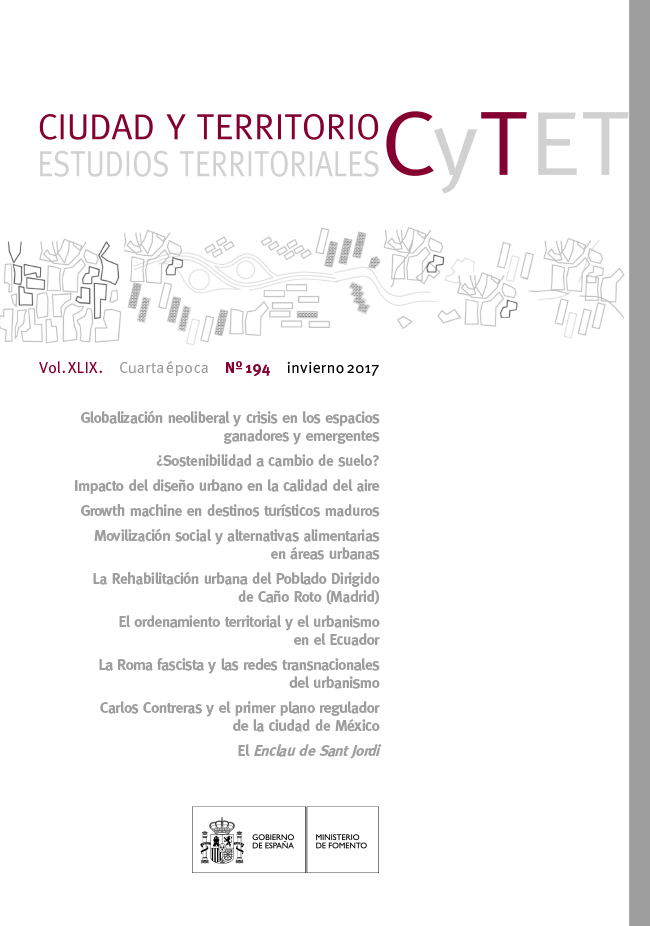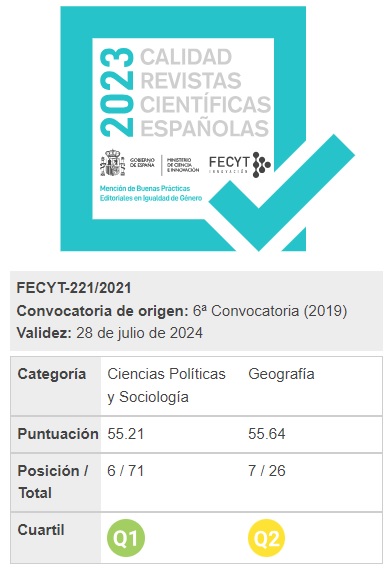Sustainability in exchange for land? The territorial imprint of the electricity generation
Keywords:
Electricity, energy, land taken up, environmental impact, CataloniaAbstract
The energy transition towards renewable and less pollutant sources involves
remarkable challenges. Among them, and usually less considered, is the challenge arising
from the need for land for new generating facilities. This study analyses the question based on
the case for producing electrical energy in Catalonia, which has undergone two large
transformations over the last few decades. Firstly, the increase in production, which has
practically doubled so that at present more than 45,000 GWh a year are generated in Catalonia, 16% of Spain’s total. Secondly, the emergence of new forms of generation, mostly based on the use of renewable sources. Apart from the undeniable benefits of this second transformation, it cannot be denied that its introduction has involved a high use of land. To analyse this impact, the present work identifies and deals briefly with the existing electricity generating facilities in Catalonia and compares them with those in existence twenty-five years ago. Results show how so far the transition towards an energy model based on renewable electricity generation sources has tended to locate new facilities away from the main consumer spending centres and has doubled the area of land that they occupy.
Downloads
Downloads
Published
How to Cite
Issue
Section
License
Copyright (c) 2017 Joan López Redondo

This work is licensed under a Creative Commons Attribution-NonCommercial-NoDerivatives 4.0 International License.
Considering the provisions of the current legislation on Intellectual Property, and in accordance with them, all authors publishing in CyTET give -in a non-exclusive way and without time limit- to the Ministry of Transport, Mobility and Urban Agenda the rights to disseminate, reproduce, communicate and distribute in any current or future format, on paper or electronic, the original or derived version of their work under a Creative Commons Attribution-NonCommercial-NoDerivative 4.0 license International (CC BY-NC-ND 4.0), as well as to include or assign to third parties the inclusion of its content in national and international indexes, repositories and databases, with reference and recognition in any case of its authorship.
In addition, when sending the work, the author(s) declares that it is an original work in which the sources that have been used are recognized, committing to respect the scientific evidence, to no longer modify the original data and to verify or refute its hypothesis. Author(s) also declare that the essential content of the work has not been previously published nor will it be published in any other publication while it is under evaluation by CyTET; and that it has not been simultaneously sent to another journal.
Authors must sign a Transfer of Rights Form, which will be sent to them from the CyTET Secretariat once the article is accepted for publication.
With the aim of promoting the dissemination of knowledge, CyTET joins the Open Journal Access (OA) movement and delivers all of its content to various national and international indexes, repositories and databases under this protocol; therefore, the submission of a work to be published in the journal presupposes the explicit acceptance by the author of this distribution method.
Authors are encouraged to reproduce and host their work published in CyTET in institutional repositories, web pages, etc. with the intention of contributing to the improvement of the transfer of knowledge and the citation of said works.








 Enlace a CyTET en Linkedin
Enlace a CyTET en Linkedin